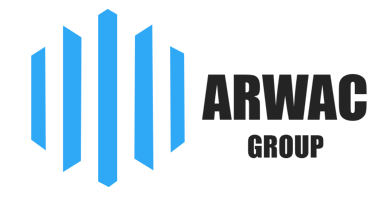IPO (Initial Public Offering)
An Initial Public Offering (IPO) marks the transition of a company from private to public ownership by offering its shares on a stock exchange for the first time. This move enables the company to raise significant capital — often used to fuel expansion, invest in innovation, reduce debt, or strengthen its market position.
IPOs also provide early investors, founders, and employees with an opportunity to realize returns by monetizing their equity. While going public can unlock substantial value, it also involves navigating complex regulatory requirements, market scrutiny, and significant costs — making expert guidance essential.
What is an IPO?
An Initial Public Offering (IPO) is a pivotal milestone for any company — marking its transition from a privately held entity to one publicly traded on a stock exchange. Through this process, the company offers shares to public investors, effectively opening ownership to the broader market.
IPOs enable companies to raise substantial capital to support future growth, innovation, and strategic expansion. At the same time, they offer investors the chance to participate in the company’s journey from an early stage of public market exposure.
Advantages of an IPO
Capital Raising
Going public enables companies to secure substantial funding — fueling expansion, innovation, and entry into new markets.Increased Visibility
An IPO elevates the company’s profile, enhancing credibility and global recognition across industries and investor networks.Enhanced Liquidity
Early investors and founders gain access to liquidity, with the ability to sell shares on public markets and realize returns.Stronger Position for Acquisitions
With listed shares as a currency, publicly traded companies are better positioned to pursue strategic acquisitions and partnerships.
Challenges of an IPO
High Costs & Regulatory Burden
Preparing for an IPO involves substantial legal, accounting, and compliance expenses — along with ongoing obligations to regulators and shareholders.
Market Volatility
Once listed, a company’s share price becomes subject to market forces, which can lead to short-term volatility and impact investor sentiment.
Increased Transparency & Reporting
Public companies must adhere to strict disclosure requirements, publishing quarterly and annual reports — which places additional pressure on leadership and operations.
Successful IPO Examples
Facebook (Meta Platforms)
In 2012, Facebook launched its IPO, raising approximately $16 billion, marking one of the largest tech listings at the time.
Alibaba Group
Alibaba’s 2014 IPO raised over $25 billion, becoming the largest global IPO in history and establishing the company as a dominant player in e-commerce.
Google (Alphabet Inc.)
In 2004, Google went public, securing $1.6 billion in capital — a pivotal moment that helped fuel its rapid global expansion.
Snapchat (Snap Inc.)
Snap Inc. debuted on the public markets in 2017, drawing investor interest toward the next generation of consumer tech platforms.
Morgan Advisors and Investment in IPOs
At ARWAC GROUP, we provide qualified clients with exclusive access to carefully selected IPO investment opportunities as part of our Private Pre-IPO and Capital Markets programs. These offerings allow investors to participate in high-potential listings from leading companies before they reach the public spotlight.
Our team of experts conducts rigorous due diligence and market analysis to identify IPOs that align with clients’ risk profiles and return expectations. By integrating IPO access into a broader portfolio strategy, we help clients diversify effectively and seize early-stage value.
From selection to execution, ARWAC GROUP supports you in making confident, data-driven decisions at every stage of the IPO process.
info@arwac-group.com
+32 2 8860811
© ARWAC Group. All rights reserved.
SOLUTIONS
HELPFUL LINKS
CONNECT WITH US
Monday – Friday: 09:00 – 18:00 (CET)
